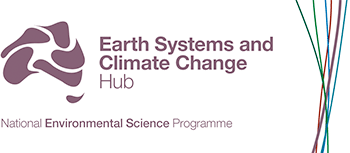The Earth Systems and Climate Change Hub is working with the managers of the Gondwana Rainforests of Australia World Heritage Area to provide climate change information to assist with planning …
Sonia Bluhm
-
-
Webinars
Science webinar: Understanding future extreme sea levels – tools and information to support coastal management
by Sonia BluhmIn this webinar, Dr Julian O’Grady provides an overview of the latest science on extreme sea levels, and gives a brief demonstration of the newly released Canute3.0 tool to estimate …
-
Webinars
Science webinar: Climate Thresholds – an easy way to explore future climate extremes
by Sonia BluhmIn this webinar John Clarke provided a demonstration of the Thresholds Calculator tool within the Climate Change in Australia website to estimate the frequency of future hot, cold, wet and …
-
Hub researchers are continuing to develop our understanding of the processes driving southern Australia’s rainfall, including the causes of our declining winter rainfall, the seasonality of rainfall, and the occurrence …
-
Webinars
Science webinar: The IPCC process and our changing oceans, ecosystems and human communities
by Sonia BluhmIn this seminar, Professor Nathan Bindoff from the University of Tasmania describes the IPCC processes and discusses some of the new and emerging research around our changing oceans.
-
Webinars
Science webinar: The impact of El Niño-Southern Oscillation (ENSO) on rainfall in a warming world
by Sonia BluhmIn this webinar, Dr Scott Power discusses significant advances in our understanding of current and future ENSO and rainfall variability based on research undertaken within the ESCC Hub using numerous …
-
Webinars
Science webinar: Australia’s national climate model (ACCESS): Development and application
by Sonia BluhmIn this webinar, Dr Harun Rashid talks about building the ACCESS climate model, Hub research to improve the atmospheric model component of ACCESS, and preparation of ACCESS for submission to …
-
Realistically simulating rainfall, especially tropical rainfall, remains a significant challenge for national and international researchers when developing climate models. Earth Systems and Climate Change Hub researchers now have an improved …
-
The Earth Systems and Climate Change Hub’s PhD Affiliate Initiative provides opportunities for post-graduate students and early career researchers to engage with stakeholders and other researchers while developing science and …
-
Webinars
Science webinar: Water futures under climate change – science, applications and challenges
by Sonia BluhmIIn this webinar, Dr Francis Chiew presents methods and projections of future water availability in Australia. He also discusses the challenges and opportunities in modelling, and potential approaches to incorporate …
-
We recently hosted a Business Leaders Breakfast at the Liveable Cities conference to talk to delegates about how NESP science can inform sustainable urban planning and development.
